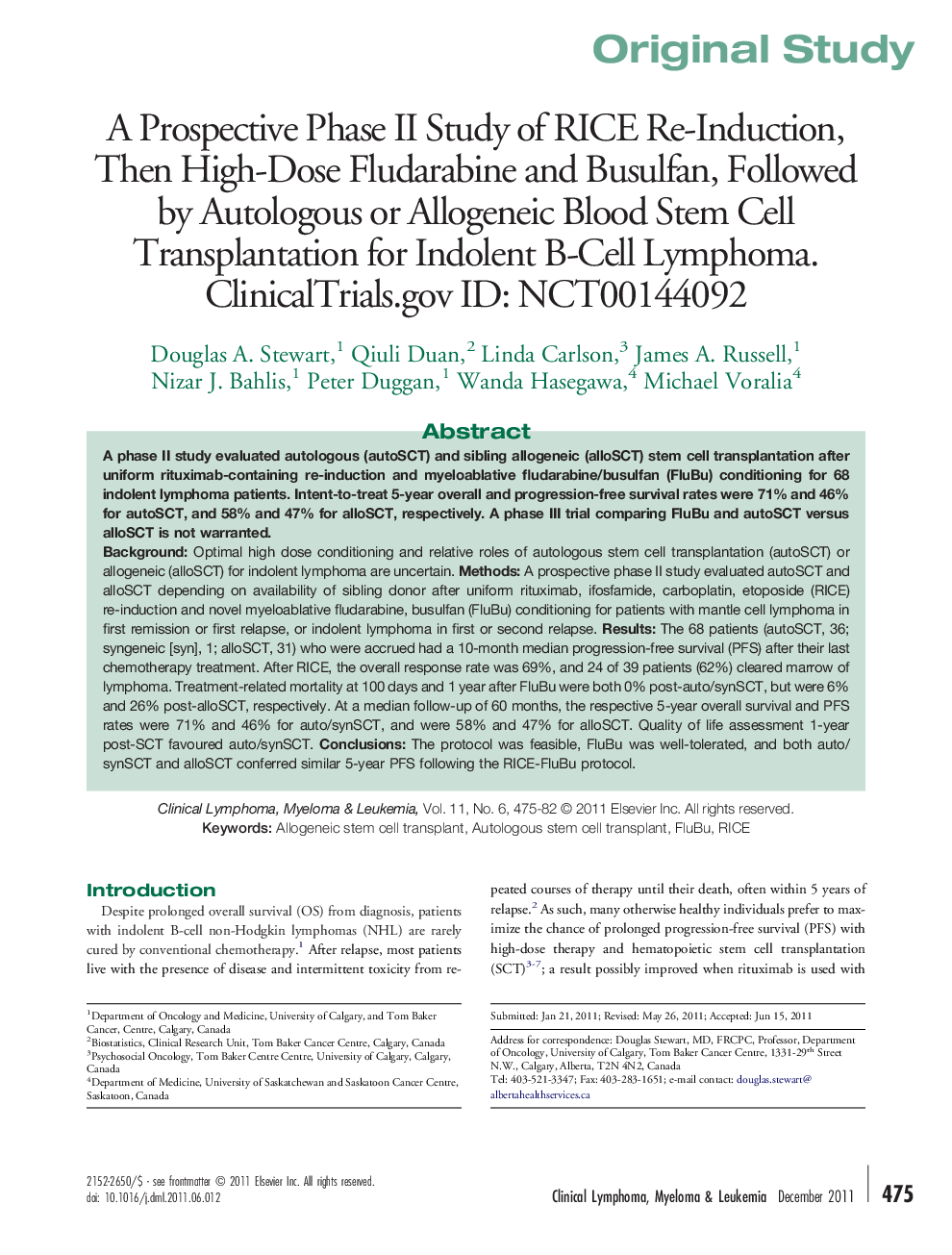| Article ID | Journal | Published Year | Pages | File Type |
|---|---|---|---|---|
| 2755233 | Clinical Lymphoma Myeloma and Leukemia | 2011 | 8 Pages |
BackgroundOptimal high dose conditioning and relative roles of autologous stem cell transplantation (autoSCT) or allogeneic (alloSCT) for indolent lymphoma are uncertain.MethodsA prospective phase II study evaluated autoSCT and alloSCT depending on availability of sibling donor after uniform rituximab, ifosfamide, carboplatin, etoposide (RICE) re-induction and novel myeloablative fludarabine, busulfan (FluBu) conditioning for patients with mantle cell lymphoma in first remission or first relapse, or indolent lymphoma in first or second relapse.ResultsThe 68 patients (autoSCT, 36; syngeneic [syn], 1; alloSCT, 31) who were accrued had a 10-month median progression-free survival (PFS) after their last chemotherapy treatment. After RICE, the overall response rate was 69%, and 24 of 39 patients (62%) cleared marrow of lymphoma. Treatment-related mortality at 100 days and 1 year after FluBu were both 0% post-auto/synSCT, but were 6% and 26% post-alloSCT, respectively. At a median follow-up of 60 months, the respective 5-year overall survival and PFS rates were 71% and 46% for auto/synSCT, and were 58% and 47% for alloSCT. Quality of life assessment 1-year post-SCT favoured auto/synSCT.ConclusionsThe protocol was feasible, FluBu was well-tolerated, and both auto/synSCT and alloSCT conferred similar 5-year PFS following the RICE-FluBu protocol.
